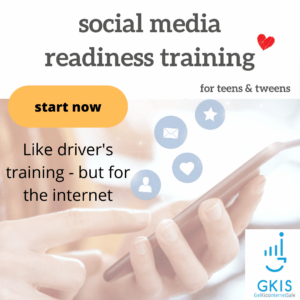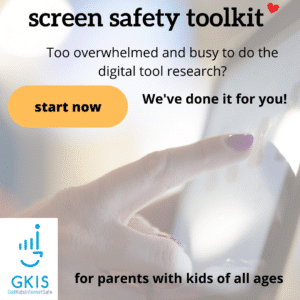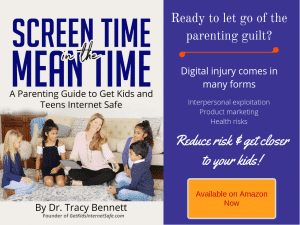
Social Media in the Lives of College Athletes

Our interviewee John said he learned how to detox from social media on occasion and also how to use cyberbullying as motivation. But when you’re a parent and hear something being said negatively toward your child, even if your child is an adult, it’s hard not to take that personally. There’s no protection from it, and if you jump to their aid online, it might ultimately harm them. College and professional teams don’t want to deal with online drama coming from parents. But sometimes, enough is enough…or is it?
When Parents Can’t Take the Online Attacks Anymore
Randi Mahomes, the mother of Super Bowl champion Patrick Mahomes, took to Twitter in 2021 to express her displeasure at a hit her son took from an opposing player. Arguably, she is in a reasonable position to speak her mind whether we agree with it or not because her son is already playing at the highest level.
But our division one college football player John’s parents weren’t so lucky. If someone was displeased with how John played a game and tweeted, “I hope your dog eats chocolate and gets really sick and throws up on your socks.”[2] (a tweet 7-time Superbowl champion Tom Brady once got), John’s parents must idly stand by and watch people sling mud at their child.
John’s mother Mary recalls, “The hardest one was seeing a tweet saying John was a ‘piece of shit’ after he had a bad game. Most of the time, I would listen to John and let it be, but I couldn’t with that comment. I had to speak my mind and tweet back.” She elaborated, “A few Twitter exchanges went back and forth, and then I let it go after speaking my mind.”
Mary said that some situations were more complicated than others, and she recalls many days being in tears over Twitter comments. She said a particularly hard day was when they read on Twitter that the college John had decided to go with unexpectedly selected a different quarterback. The tweet went out before John ever got a personal call saying the spot that he was offered was no longer available. It was heartbreaking, considering that he had turned down other offers in favor of this one, some of those offers were no longer available. After many conversations with the college scout prior to the tweet that seemed like a guarantee is followed with silence, it was hurtful.
Mary said, “About 80% of the time, the tweets were very positive. John had a good record, so it was more good than bad.” She said she still uses Twitter because she has other interests in the app, not just sports. Her husband, however, has since deleted the app now that their son is done with his athletic college career.
Parents are proud of their children and love to hear positive things. They don’t want to read tweets from strangers saying how their child isn’t trying hard enough or how they lost the big game for the team. Parents see firsthand how much their child loves the game, how hard they work, and how much sacrifice they give up competing at a top level. Because online education starts with parents, we created our Screen Safety Essentials Course for parents and families. Knowing what troubles lurk online will help parents teach their kids what they need to know to avoid digital injury and problem-solve through difficult online situations.
Other Ideas for How to Work Around Unwanted Negativity
- Take regular breaks from social media. Our GKIS article, Start Fall Fresh With a Cleansing Digital Detox is a great article to help you take that first step.
- Keep a positive dialogue going with your child about the pressures that arise from being an athlete with anonymous fans.
- Adopt our free Connected Family Agreement, a simple tool that sets reasonable online limits and feeds a cooperative family alliance when it comes to online decisions.
- Filter and manage online content with our Screen Safety Toolkit. This resource guide helps you build a customized set of parental controls for filtering and monitoring online content.
- Set designated times throughout the week when everyone spends time together without their devices. Share about your offline and online lives to stay connected.
Thanks to C
I’m the mom psychologist who will help you GetKidsInternetSafe.
Onward to More Awesome Parenting,
Tracy S. Bennett, Ph.D.
Mom, Clinical Psychologist, CSUCI Adjunct Faculty
GetKidsInternetSafe.com
*Mary is a fictional name to maintain anonymity.
Works Cited
[1] Patchin, J. W., Ph.D. (2019, July 9). 2019 Cyberbullying Data. https://cyberbullying.org/2019-cyberbullying-data [2] Kimble, L. (2021, February 5). Tom Brady Reads Mean Tweets About Himself Ahead of Super Bowl 2021. People.com. https://people.com/sports/super-bowl-2021-tom-brady-reads-mean-tweets/Photo Credits
[1] Photographer Unknown https://www.pexels.com/photo/white-ceramic-teacup-beside-black-iphone-5-on-brown-wooden-table-58639/ [2] Karolina Grabowskahttps://www.pexels.com/photo/a-woman-with-a-coffee-cup-in-front-of-a-laptop-7320744/ [3] Nicola Barts
https://www.pexels.com/photo/stressed-beard-black-man-working-on-laptop-7925881/









